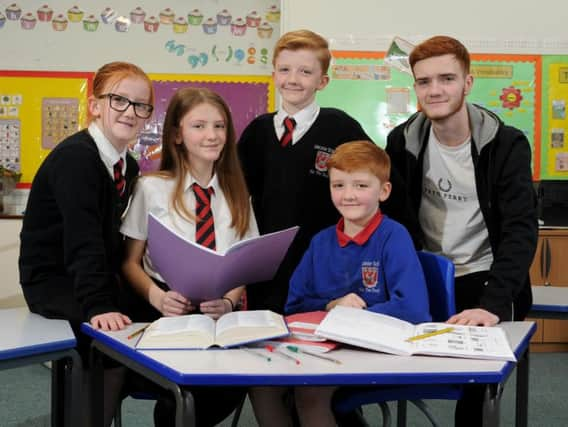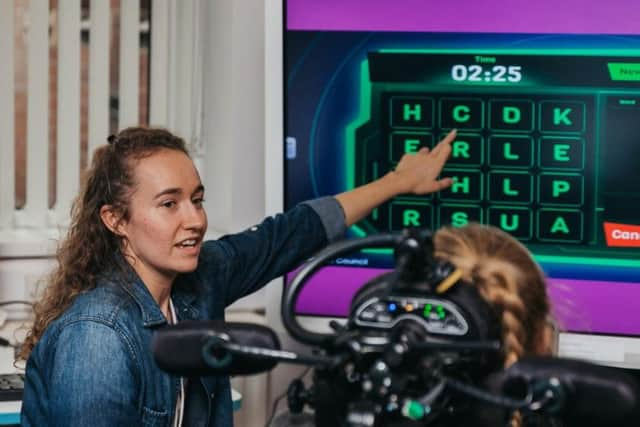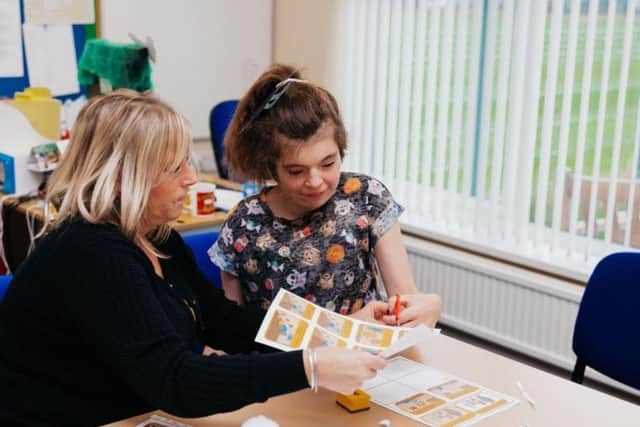Doncaster Deaf Trust has been supporting and educating hearing impaired students for 190 years - This is how it is making a difference


Today, Doncaster Deaf Trust, which traces its history back to that early school for the deaf, has a simple aim: to educate and equip deaf and hearing impaired young people with the knowledge and skills to help them achieve their full potential.
Its origins in the early 19th century were in the plight of a Rotherham labourer who had five deaf children in his family. Two were being taught some 160 miles away from home, attending one of the country’s few specialist asylums, this one in the capital.
Advertisement
Hide AdAdvertisement
Hide AdThe family’s tale struck a chord with clergyman William Carr Fenton. A sacred duty of his generation was to tutor the next in piety. And so was born the idea for an institution closer to home – it would give those who struggled to communicate with others an opportunity to learn on their doorstep.


How this deaf student is taking his first steps into the world of workAt a time when many parents kept their deaf children hidden from public sight, finding prospective pupils wasn’t easy. But perseverance, benevolence, social duty and shrewdness helped bring the school, in Doncaster, into existence, its mission statement to “rescue these children from that state of mental darkness in which they are usually found” and to “teach them their duties towards God and man”.
Much has changed in the 190 years that have followed since and today, Doncaster Deaf Trust, a registered charity which provides specialist support, owns and manages a nursery, school and college as well as an employment unit that assists adults and a care home for children.
Six members of the Smith family, formerly of Doncaster and now living in Cleethorpes, have benefited from the trust’s nurturing environment. Four siblings – Louise, Oliver, Emily and Jasper – attend the trust’s school, their elder brother Bradley is in his third year at its college and their mum Laura has previously attended as a school pupil.
Advertisement
Hide AdAdvertisement
Hide AdBradley, who is deaf, has been with the trust for over nine years. “British Sign Language (BSL) is my main, first language and as all the staff in the school and college sign, communication has been so much easier. This has helped me to learn because I can understand what is being taught.


"I feel my education and knowledge would have been lower if I had not been in this environment. As well as the education, the social aspect is really important here and I enjoy chatting, signing, with all my friends. We have developed a strong community which makes you feel part of something and not so isolated.”
The 18-year-old, who hopes to become a plasterer, went to mainstream school from the age of three up until year six, before moving to the trust, which has been celebrating its 190th milestone this year.
In a piece he wrote at Doncaster School for the Deaf aged 14, he said: “When I was around seven to nine, I felt frustrated because nobody was helping me. There were 30 pupils in my class, talking fast, being silly and working at a fast pace.
Advertisement
Hide AdAdvertisement
Hide Ad"I didn’t understand because my teaching assistant waited for the teacher to finish talking, then she signed to me. This meant that I started my work after the other children so I was always last. I felt frustrated.”
Deaf college teaching couple look forward to holiday timeBradley’s experience is not unique, as Teresa Cartlidge, the assistant head at the school explains. “An awful lot of deaf children do extremely well in mainstream school with cochlear implants or hearing aids and there are massively successful children, with the right input and support. However, there are some children that do need schools like this.
“They might need the pace of learning changed – for many children, when they get to about year five or six in primary, the pace of work gets quite fast and they start to feel out of it and quite isolated.
"The typical challenge is the pace, not feeling part of the group and the adaptation of language. Here, we all sign at a high level so communication is first hand. It’s not through an interpreter or someone next to you.”
Advertisement
Hide AdAdvertisement
Hide AdDespite being based in Doncaster, the trust is a national resource and pupils attend, via local authorities, from all over the UK. Its facilities are designed to assist people who have deafness and hearing impairments, autism spectrum conditions, Down’s syndrome and other communication and learning difficulties.
Fees to the trust’s school are paid by the relevant local authority and education funding agency, but Jane Goodman, deputy head, says one of the biggest challenges is councils preferring to keep students in their local area.
“We have got to make sure all children are placed as well as they can be,” she says. “Whether they are in mainstream school or here, they only get one chance at education and it’s so important. There’s a lifelong impact.”
Azar Hafizi, 20, has been a residential student at the trust’s Communication Specialist College for three years, studying away from his family, who live in Cambridge. “Having a good specialist education is important and there isn’t a college on my doorstep that could meet my needs,” he says.
Advertisement
Hide AdAdvertisement
Hide Ad“Since coming to [this] college, my confidence and knowledge have improved hugely...I get lots of one-to-one help with college work, all the teachers sign and my English, maths and IT skills have really developed.”
Those involved in the trust believe in providing “the earliest possible specialist intervention” to help its students thrive. It runs a full curriculum, specially adapted for those who are deaf or have specialist educational needs, plus a skills for life programme and BSL.
Class sizes are smaller and all staff have high level signing skills. There’s also a team of speech and language therapists and audiologists on hand. “We also do deaf studies,” explains Jane. “That’s really important because it’s about identity and culture.
"The trust is not only about the academic side of things but emotional strength and feelings...It’s about building confidence and resilience, students can achieve as any other person in society can.”
Advertisement
Hide AdAdvertisement
Hide Ad“It’s a hearing world,” adds Teresa. “A lot of our children use BSL so they face issues of communication. We are teaching them to be resilient and how to communicate not only in BSL but with hearing people too and how to repair breakdowns in communication.
Online campaign to help deaf people wins support from MPs"Many of our children are from hearing families so it is also about working with them too to find ways of communicating with each other.”
Alexis Johnson, the trust’s executive principal is proud of its history and its work to help students achieve their aspirations and lead fulfilling lives.
“We have some really exciting plans ahead to ensure we can continue to grow and develop the services on offer and are confident we will be providing this vital support to people who benefit from the work of the trust for many more years to come.”
Advertisement
Hide AdAdvertisement
Hide AdTo mark Doncaster Deaf Trust’s 190th milestone, a series of events have been taking place including a celebratory dinner for staff, stakeholders and supporters and a get together for ex-students. Current pupils have also been involved in a drama performance about the history of the trust, a show being repeated in the school’s Christmas assembly on December 18.
Bobbie Roberts, chair of trustees, said children had been excited to be part of the celebrations. He added: “The trust is an independent, non-maintained school and college and a registered charity and we receive no funding from local or central government. We could not do everything we want to without the generous support of donors so I want to thank them for their support.”